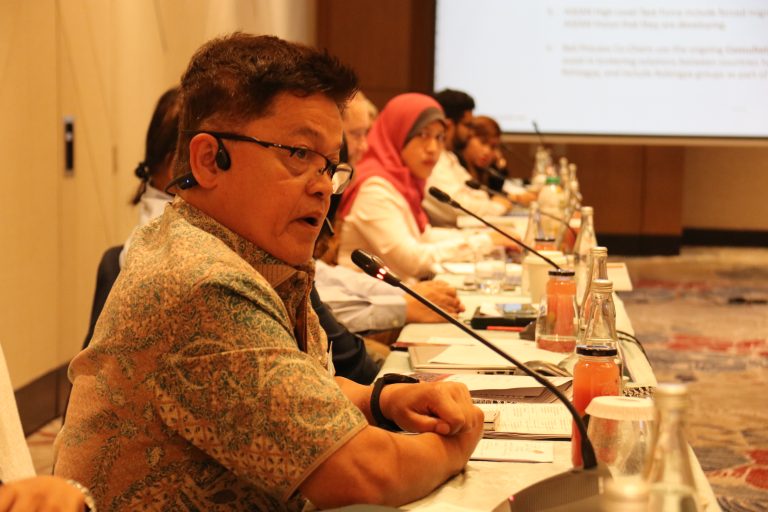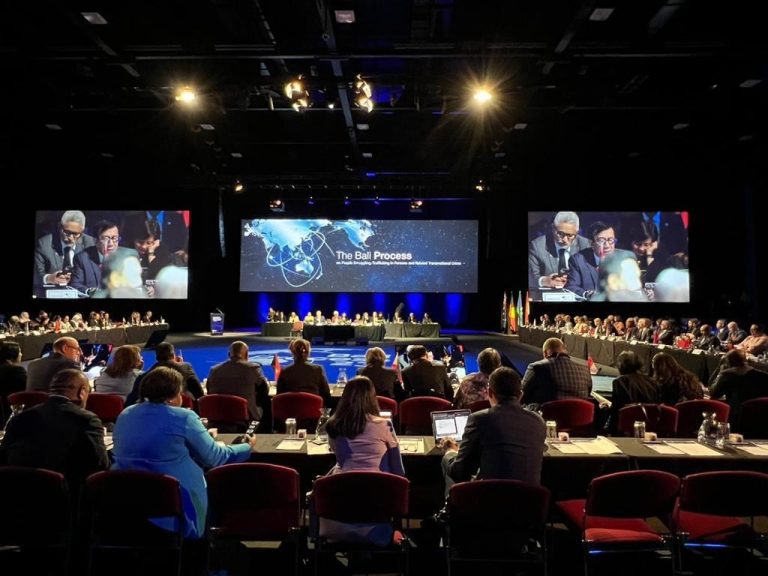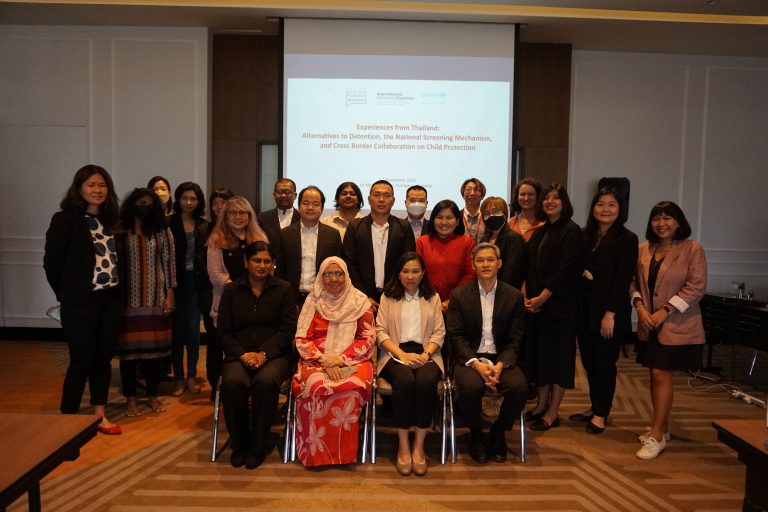Asylum and refugee policy report launched by The Hon Fred Chaney AO, Senior Australian of the Year 2014 and CPD Patron

The Beyond the boats report stemmed from a high-level roundtable on asylum and refugee policy held at Parliament House in July under the auspices of the Centre for Policy Development, Australia21, and the Andrew & Renata Kaldor Centre for International Refugee Law at the University of New South Wales.
The report presents a nine-point framework that focused on managing arrivals, conditions and treatment, and regional and community engagement. The report suggested strategies for the short-term, such as expanding pathways for humanitarian settlement, as well as long-term strategies, such as the regional Track II dialogues.
Here are some examples about what has been said about the report so far.
Print:
- Sarah Whyte, in the Fairfax press, stated that “Beyond the Boats: building an asylum and refugee policy for the long term, is one of the most significant bipartisan documents about the government’s asylum seeker policy to be released this year, as the migration of displaced people around the world continues to escalate to numbers not seen since World War II.”
- Bob Douglas, CEO of Australia21, expressed that “we need as a nation to take a deep breath and and ask what next? Where does and will Australia stand in responding to the ongoing global displacement of people from they homes – the biggest such movement since World War II with 51 million people now adrift from their homes?”
- Shalailah Medhora, in Guardian Australia, quoted Travers McLeod: “We have a window of opportunity because the boats have stopped. So now there’s an opportunity for long-term policy advancement.”

- Alexandra Kirk, on ABC Online, quoted Fred Chaney: “You can’t keep recycling that. If the boats stop coming, will the problem go away? No, it won’t because our neighbours are going to have continuing problems, we’re going to have continuing problems as a country dealing with what is an international issue.”
- SBS News stated that the report “calls for a fresh approach to a long-term immigration policy. It will outline ways to deal with managing asylum seeker arrivals and the country’s regional engagement, calling for swift determination of claims, stronger work rights, and a transition away from mandatory detention.”
- Jake Flanagin, in the New York Times Opinion blog, told readers: “In another piece for The Sydney Morning Herald, the paper’s immigration correspondent, Sarah Whyte, highlights a new report which calls for a ‘long term policy to handle immigration.'”
- The Gladstone Observer “An end to mandatory detention of asylum seekers, expansion of Australia’s refugee resettlement program and other initiatives are essential to forming a long-term solution to people smuggling, a landmark report has urged.
Radio:
- Fred Chaney spoke to Alison Carabine on ABC Radio National. Fred told the program: “The incentive is to work within the system. The problem is the system is one which doesn’t serve many people who have got genuine refugee status and that’s why we’ve got to do much more internationally and indeed increasing
 our own intake would be a sign of bona fides to these countries that we need to cooperate with for us to have a successful, controlled immigration, including refugees, approach.”
our own intake would be a sign of bona fides to these countries that we need to cooperate with for us to have a successful, controlled immigration, including refugees, approach.” - Paris Aristotle, CEO of Foundation House, Fred Chaney and Wiryono Sastrohandoyo, former Indonesia Ambassador to Australia, spoke with Alexandra Kirk on Radio National AM. Paris told the program: “There are no complete solutions to this issue. There will only be better ways of managing them. What I would like to see happen is for the entrenched positions that people have held for so long to be broken down and for people to come into a dialogue process that allows us to discuss all of the issues and provide credible, viable and long-lasting strategies for managing this issue better.”
- Jessica Ball from The Wire interviewed Travers McLeod and Professor Munjed Al Muderis, refugee and orthopaedic surgeon. Travers said “One thing that is clear is the danger of looking at this purely from a domestic vantage point. Over 30% refugees are in the Asia-Pacific region. The numbers are growing not receding. We need a trusting, respectful, often off the record conversation between official in government, outside of government with key source destination and transit countries. So building that track 2 dialogue, which we say has been missing on forced migration in this region is absolutely essential.”
- Patrick Condren from 4BC Mornings spoke to Bob Douglas, CEO of Australia21. Bob Douglas expressed that “[The government] has, I think, stopped the boats, but it hasn’t done anything to deal with the refugee problem around the world and that’s the question we think Australians have to start talking about and the Abbott Government hasn’t started talking about it.”
- Peggy Giakoumelos & Sacha Payne from SBS World News interviewed Arja Keski-Nummi and Munjed Al Muderis. Arja Keski-Nummi stated “It’s been blow up into an issue much larger than it actually is. And I think we need to get some of the hear out of the conversation and have a conversation about the needs of people who are seeking asylum, what the issues are and how they are actually being processed in Australia. It just, I think, gives people a confidence that this isn’t a big problem, as has been portrayed.”
Television
- Hon Fred Chaney appeared on Sky News Agenda with host David Speers. Fred spoke about the potential benefits of a Track II dialogue: “We’re suggesting an approach called a track two approach. Which means that there is a lot of work done outside of the political sphere. Sure politicians take part in it, but so do public servants, military people, intelligence people, industry people to start providing a framework of understanding within which you can do things together. I think that sort of thing has been proven to work out in other areas, it can work here.”
Download the ‘Beyond the boats’ report
Read about the high-level roundtable






